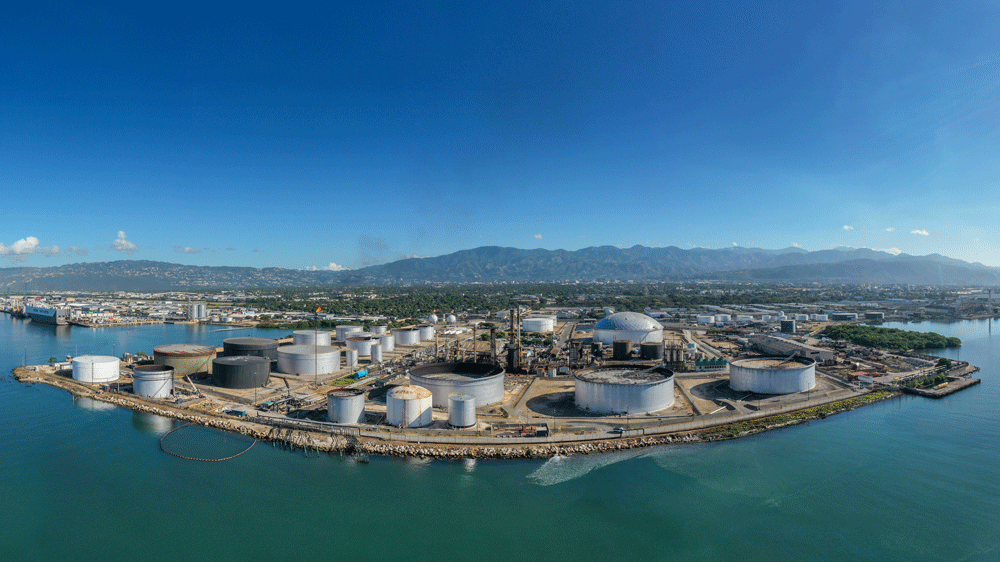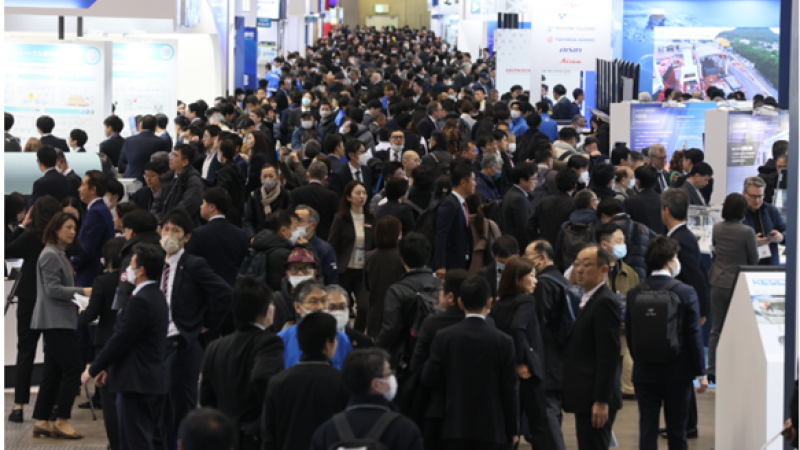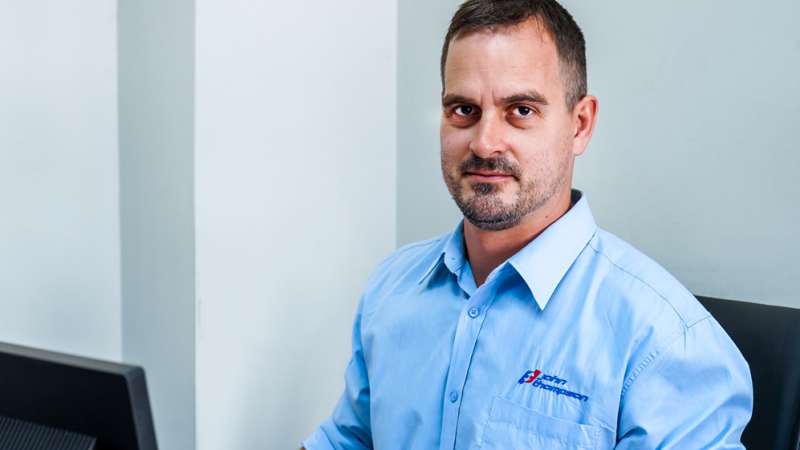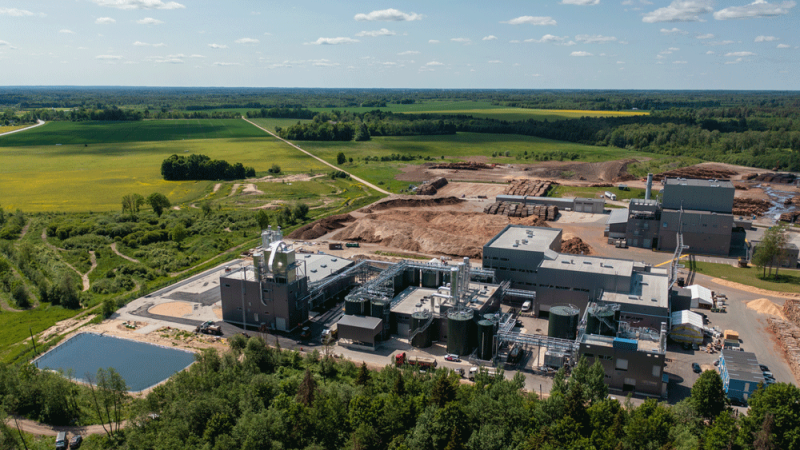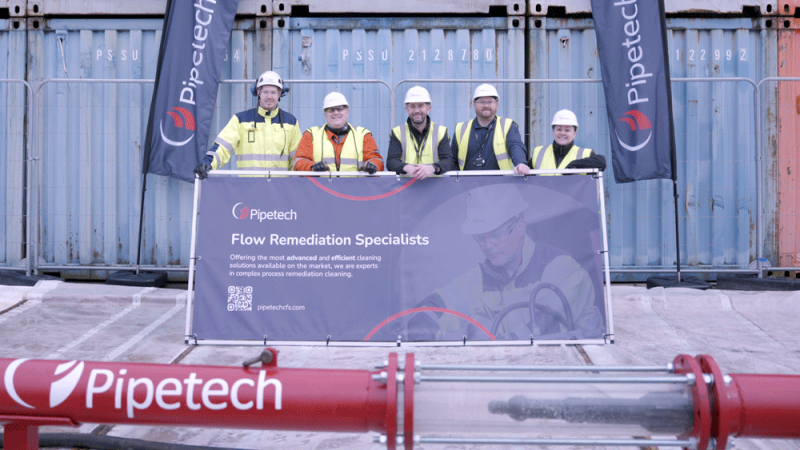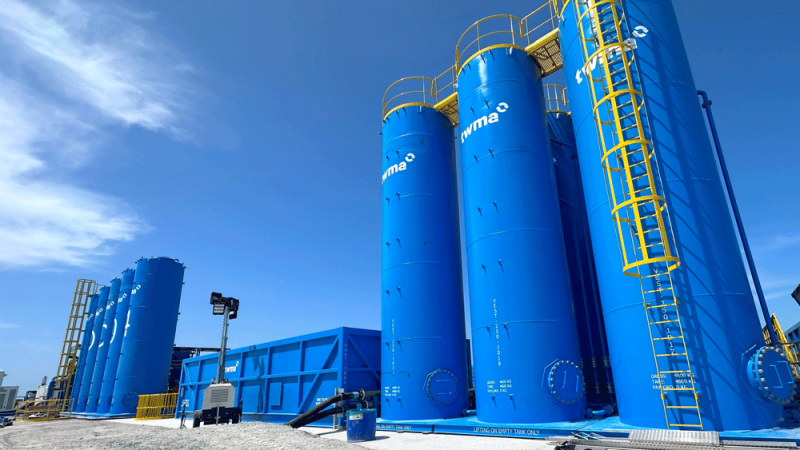Petrojam Limited is Jamaica’s only oil refinery and is owned by the Government of Jamaica. The company operates a hydro-skimming Plant with a designed refining capacity of 36,000 barrels per day. They also import finished products to supplement market demand.
“Petrojam is critical to advancing and ensuring Jamaica’s energy security and has certainly proven its resilience throughout the years. Our mandate is to reliably supply Jamaica with petroleum products at internationally competitive prices,” says Telroy Morgan, General Manager of Petrojam.
He adds, “Our values are a commitment to health, safety and the environment, through excellence, teamwork, customer focus and the strictest –integrity. We are committed to serving the energy needs of the nation, and that’s what drives our service delivery on a day-to-day basis.”
The company, which consists of 270 team members, supplies its customers through two major terminals in Kingston and Montego Bay. But, while Petrojam is Jamaica’s only oil refinery, it is not the only player in the local petroleum market.
“Even though we are the only refinery, we are not the only distributor,” Morgan says. “What sets us apart is our tried, tested and proven track record of being able to supply when others cannot. We can also refine crude oil, particularly during times when there are supply constraints in the finished product market.”
This provides Petrojam’s customers with the stability they need to thrive in a volatile market.
Throughout the years, Petrojam has fulfilled its mandate to be the least-cost supplier of petroleum products to the Jamaican market. The company remains a guiding force within the industry, fully committed to transparency and accountability in its pricing methodology. This commitment not only reinforces its position as the market leader, but also highlights its role in fostering stability within the Jamaican market.
“We are the conscience for the petroleum market and therefore we keep the players in the market honest, in the interest of the Jamaican people,” states Morgan.
Petrojam guarantees its customers petroleum products of the highest quality. It has the only fully equipped petroleum and ethanol laboratory in Jamaica, which offers facilities for product testing and analyses to Jamaican businesses as well as the scientific community.
This laboratory is comparable with other international petroleum testing laboratories and strictly conforms to ASTM International and other internationally accepted standards used for measuring and testing petroleum products. By the end of this financial year, Morgan intends for the firm to be ISO 17025 certified.
“We are paying a lot of attention to Environment, Social and Governance (ESG), by developing ways to support the energy space sustainably,” Morgan shares.
Currently, the flagship of Petrojam’s ESG efforts is a spearhead thrust to establish a new burncare facility at the island’s university hospital, at an estimated cost of USD 1.6 million.
“This has been a national initiative in collaboration with the University Hospital of the West Indies (UHWI) to build a fit-for-purpose burn care facility that serves the needs of Jamaica and the region,” Morgan says.
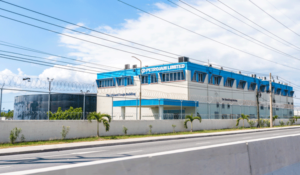 Setting the Standard
Setting the Standard
Petrojam is committed to initiatives that promote a sustainable future.
“We are implementing strategies to significantly reduce our carbon footprint. Through these efforts, we aim to not only meet regulatory requirements but also set a new benchmark for environmental stewardship in our industry,” Morgan states.
Notable examples of the company’s sustainable efforts are the replacement of MTBE in gasoline and the complete adoption of ethanol as the octane enhancer for gasoline in 2009. More recently, when the International Maritime Organisation introduced a new, lower sulphur cap for marine fuels, Petrojam had to pivot hard to hit the new specifications.
It took two years of preparation to ensure a smooth transition to the new standard. This preparation allowed Petrojam to start the production and sale of Very Low Sulphur Heavy Fuel Oil (VLSHFO) in December 2019, well before the January 1, 2020 deadline.
“We have been producing a premium brand of VLSHFO from virgin crude, and because it is not a blended product, it affords greater stability and quality in the systems that it is used,” says Morgan.
He notes that Petrojam continuously recalibrates its business model to ensure reliable supply and commercial viability.
Morgan highlights that the company consistently encourages and nurtures innovation, most recently in its introduction of performance-grade asphalt to the local market.
“This is being used for overlaying and extending runways at the international airports in Jamaica,” he notes.
Working for Jamaica
By investing in and supporting Team Petrojam, Morgan is paving the way for the future of the company, and the country. However, due to migration, some positions are increasingly challenging to fill and retain.
“Our staff is the spinal column of our organisation and our greatest asset. We are developing our succession planning at the moment, to give our team a line of sight within the organisation and the ability to position themselves for new opportunities,” Morgan tells us.
While Morgan is the first to admit the challenges posed by young people looking to other countries for opportunities, he also points to Petrojam’s low turnover and its continued pipeline of talent from both local universities and people overseas looking to move to Jamaica.
“Other countries and economies are making competitive offerings, but we have a team that is committed to nation building,” he notes.
Morgan points to himself as one such example. He started out as a young chemical engineer who completed his high school studies in Jamaica before studying engineering in Trinidad. Then, on his return, Morgan served at the refinery for four years before doing a Masters at the University of Toronto. He also obtained an MBA (with distinction) from Heriot-Watt University, Edinburgh Business School.
 From there he worked his way up to a senior engineer position, before becoming Superintendent of Process Engineering, then Production Manager, then Manager of Strategic Planning and Business Support. Having served the company for almost thirty years, he is now General Manager of Petrojam.
From there he worked his way up to a senior engineer position, before becoming Superintendent of Process Engineering, then Production Manager, then Manager of Strategic Planning and Business Support. Having served the company for almost thirty years, he is now General Manager of Petrojam.
“Petrojam itself is a university and our company invests significantly in the training and development of staff,” Morgan says. “We take a keen interest in our staff welfare, and have established ourselves as one of the best employers in Jamaica.”
Touching on energy security, Morgan firmly states, “Petrojam’s strategic outlook is for an energy company that prioritizes supply reliability, sustainability, and innovation.”
“We will continue to be dynamic with a strong outlook on the cleaner fuels sector, led by a vision that allows us to pivot where necessary and stay attuned to the market, especially from an environmental perspective,” Morgan says. “I see oil and gas being around for some time in Jamaica and that will remain a part of what we do. But we will also diversify around fuels, such as hydrogen, LNG, and biofuels.”
The company has been implementing strategies to optimise the refinery’s operations to provide cleaner fuels for sustainability and profitability. As always, the company’s primary mission is to serve Jamaica’s energy needs.
“With our focus on ESG, we continue to strengthen every aspect of our business. Our attention is on decarbonisation, carbon footprint reduction, and social care in neighbouring communities and for Jamaica. We are working with the government to ensure we have got the right framework in place,” Morgan concludes.

